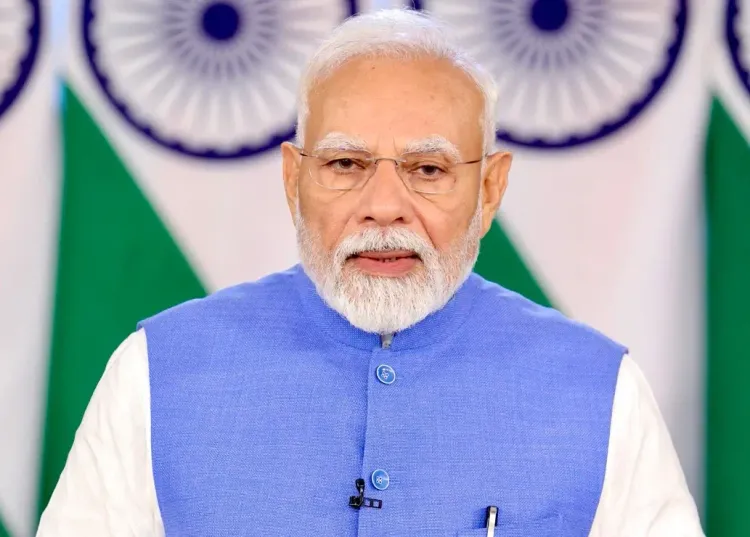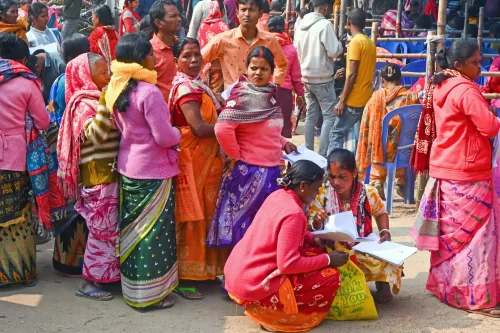Did PM Modi Congratulate Friedrich Merz on His New Role?

Synopsis
Key Takeaways
- Friedrich Merz elected as Chancellor of Germany.
- PM Modi emphasizes strengthening India-Germany ties.
- Merz is the first Chancellor candidate since WWII to fail in the first round.
- He has a long political history and leadership experience.
- The election signifies potential shifts in international diplomacy.
New Delhi, May 6 (NationPress) Prime Minister Narendra Modi warmly congratulated Friedrich Merz, the newly appointed Chancellor of Germany, on taking office.
“Heartfelt congratulations to @_FriedrichMerz on assuming office as the Federal Chancellor of Germany. I am eager to collaborate to strengthen the India-Germany Strategic Partnership, ” PM Modi stated on his X handle.
Friedrich Merz, representing the Christian Democratic Union (CDU), was elected as Chancellor after securing 325 votes from Germany's Bundestag, surpassing the required 316 votes.
In the initial round of voting earlier that day, Merz garnered 310 votes, marking him as the first Chancellor candidate since World War II to not be elected in the first round.
After the initial voting round, Bundestag President Julia Kloeckner paused the plenary session. Political party groups held extensive discussions before organizing a second voting round.
Upon the election results, Merz proceeded to the official residence of the Federal President, Schloss Bellevue, for his formal appointment by President Frank-Walter Steinmeier.
Born in 1955 in North Rhine-Westphalia, Germany, Merz pursued a legal education and served as a judge in Saarbrucken from 1985 to 1986.
He was a member of the European Parliament from 1989-1994 and served in the Bundestag from 1994-2009. He led the CDU/CSU parliamentary group from 2000-2002.
After leaving active politics in 2009, Merz announced his comeback in 2018, following then-Chancellor Angela Merkel's decision not to run for re-election, as reported by Xinhua news agency. He subsequently became the chairman of the CDU and leader of the CDU/CSU parliamentary group.










